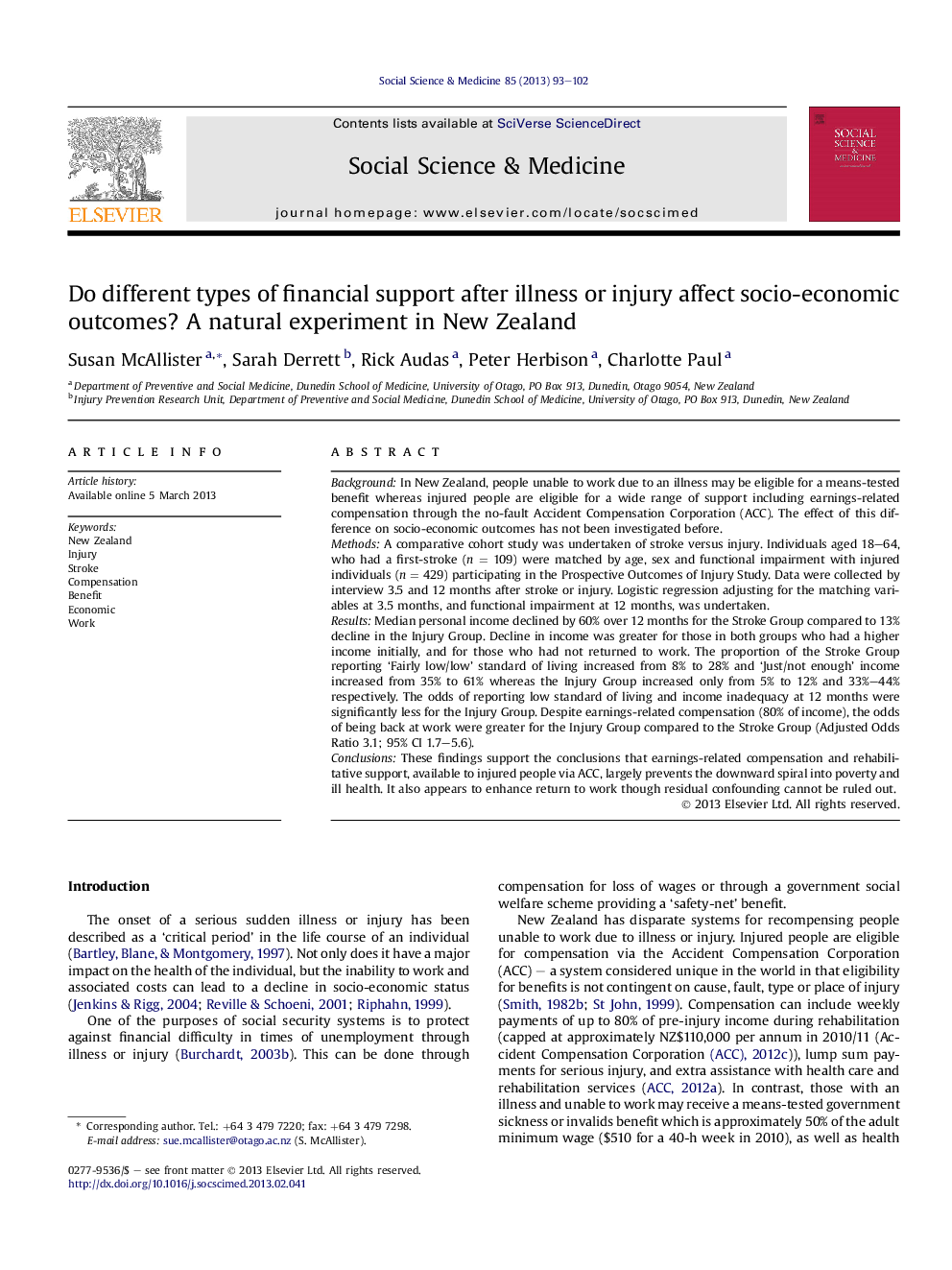| کد مقاله | کد نشریه | سال انتشار | مقاله انگلیسی | نسخه تمام متن |
|---|---|---|---|---|
| 952321 | 1476083 | 2013 | 10 صفحه PDF | دانلود رایگان |
BackgroundIn New Zealand, people unable to work due to an illness may be eligible for a means-tested benefit whereas injured people are eligible for a wide range of support including earnings-related compensation through the no-fault Accident Compensation Corporation (ACC). The effect of this difference on socio-economic outcomes has not been investigated before.MethodsA comparative cohort study was undertaken of stroke versus injury. Individuals aged 18–64, who had a first-stroke (n = 109) were matched by age, sex and functional impairment with injured individuals (n = 429) participating in the Prospective Outcomes of Injury Study. Data were collected by interview 3.5 and 12 months after stroke or injury. Logistic regression adjusting for the matching variables at 3.5 months, and functional impairment at 12 months, was undertaken.ResultsMedian personal income declined by 60% over 12 months for the Stroke Group compared to 13% decline in the Injury Group. Decline in income was greater for those in both groups who had a higher income initially, and for those who had not returned to work. The proportion of the Stroke Group reporting ‘Fairly low/low’ standard of living increased from 8% to 28% and ‘Just/not enough’ income increased from 35% to 61% whereas the Injury Group increased only from 5% to 12% and 33%–44% respectively. The odds of reporting low standard of living and income inadequacy at 12 months were significantly less for the Injury Group. Despite earnings-related compensation (80% of income), the odds of being back at work were greater for the Injury Group compared to the Stroke Group (Adjusted Odds Ratio 3.1; 95% CI 1.7–5.6).ConclusionsThese findings support the conclusions that earnings-related compensation and rehabilitative support, available to injured people via ACC, largely prevents the downward spiral into poverty and ill health. It also appears to enhance return to work though residual confounding cannot be ruled out.
► First study comparing socio-economic consequences of different financial supports after illness or injury in New Zealand.
► The Illness Group, with ‘safety-net’ income support, had considerably poorer socio-economic outcomes than the Injury Group.
► Surprisingly, the Injury Group, eligible for earnings-related compensation, returned to work earlier.
► Those who did not return to work, with minimum income support, are most vulnerable for decline into poverty and ill health.
Journal: Social Science & Medicine - Volume 85, May 2013, Pages 93–102
